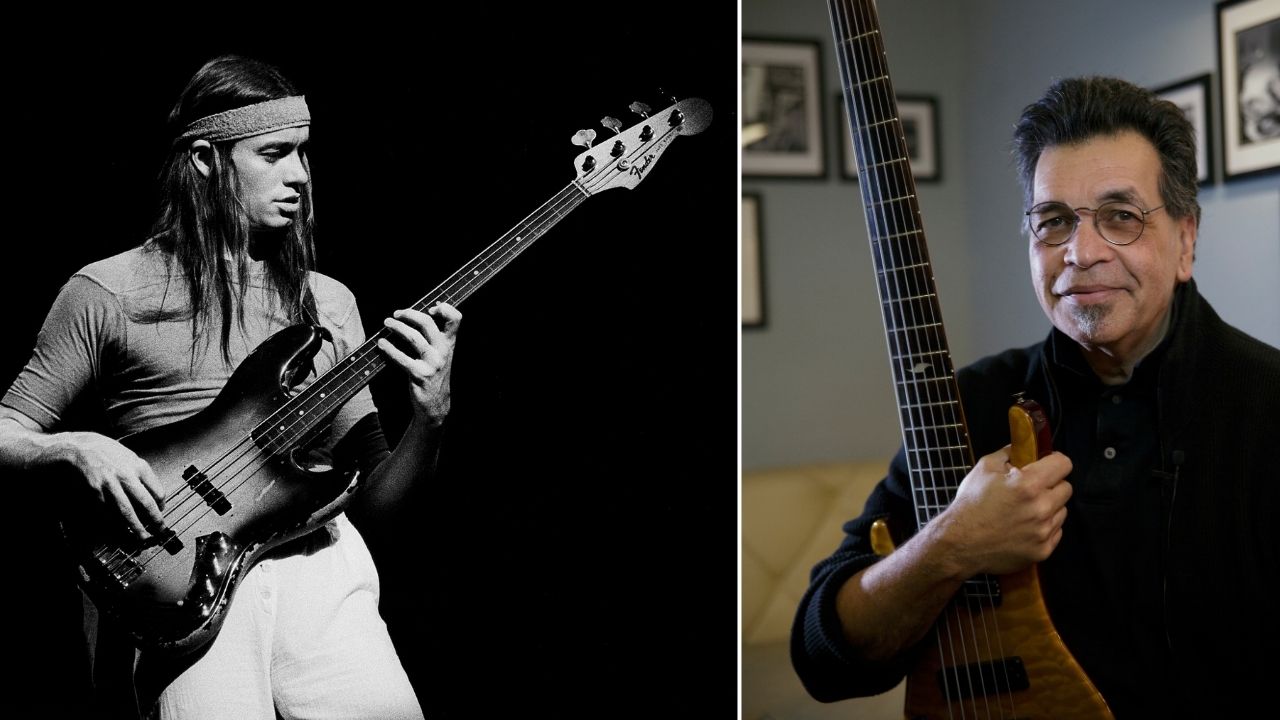Best pitch shifter pedals 2025: an essential tool for channeling Tom Morello, Steve Vai and Joe Satriani
For face-melting solos and keeping your audience on their toes, pitch shifters are a surefire way to inject something different into your tone
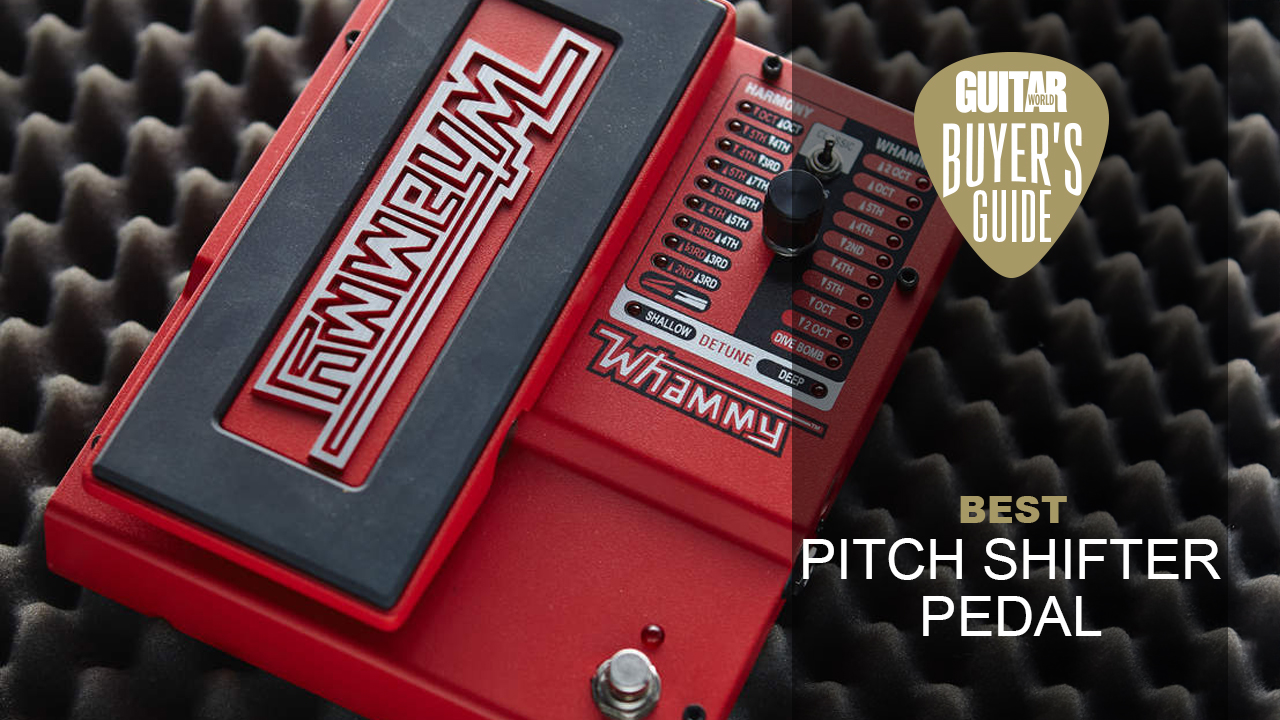
As guitar players, we are constantly looking for new and creative ways to express ourselves, with most of us turning to pedals to help us achieve weird and wonderful new sounds. Investing in one of the best pitch shifter pedals opens the door to one of the most dramatic effects you can apply to your electric guitar, giving you the ability to change the pitch of your input signal on a dime – resulting in some killer tones!
Many of the world's greatest guitar legends have used pitch shifting to devastating effect, with the likes of Tom Morello, Jack White, Mike Kerr, and Joe Satriani taking full advantage of this powerful effect to create some of the most monstrous riffs of all time.
More than just a gimmick, the best pitch shifter pedals can breathe new life into stale playing, sometimes even inspiring entire songs. With brands like DigiTech, TC Electronic, and Electro-Harmonix offering a wealth of options, there’s never been a better time to shift your pitch.
So, if you're looking to beef up your riffs with a thick lower octave, take your lead lines to a whole new level, or add expressive dive bombs to your playing, then this guide to the best pitch shifter pedals is most definitely for you.
Our top picks
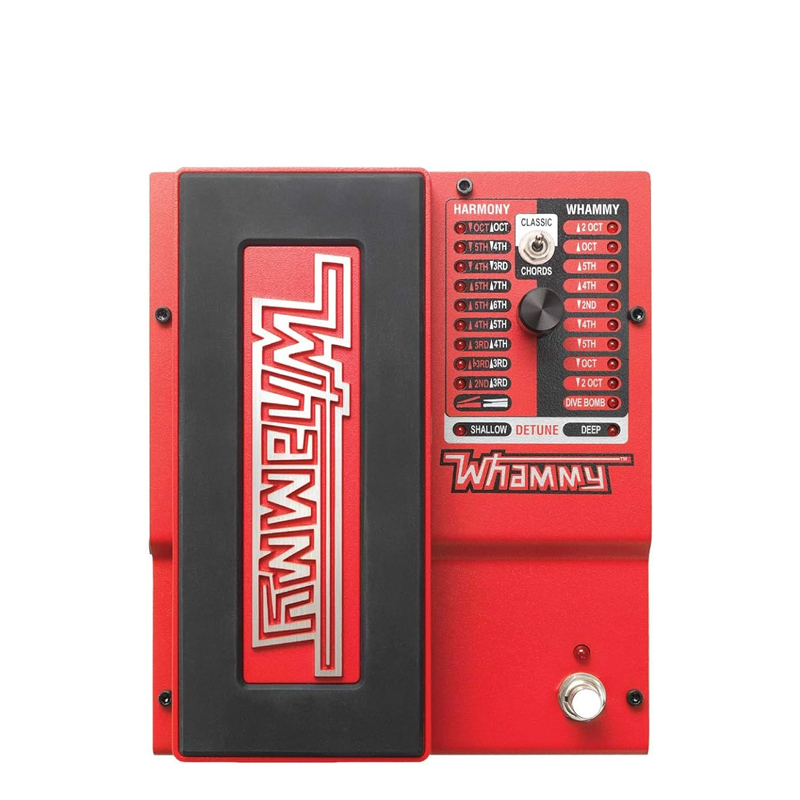
Since Tom Morello showed its expressive power, the Whammy has been used again and again to define songs, albums and even whole discographies. Guitarists like Johnny Greenwood, Steve Vai, Joe Satriani, Matt Bellamy and Joe Duplantier use it in radically different ways.
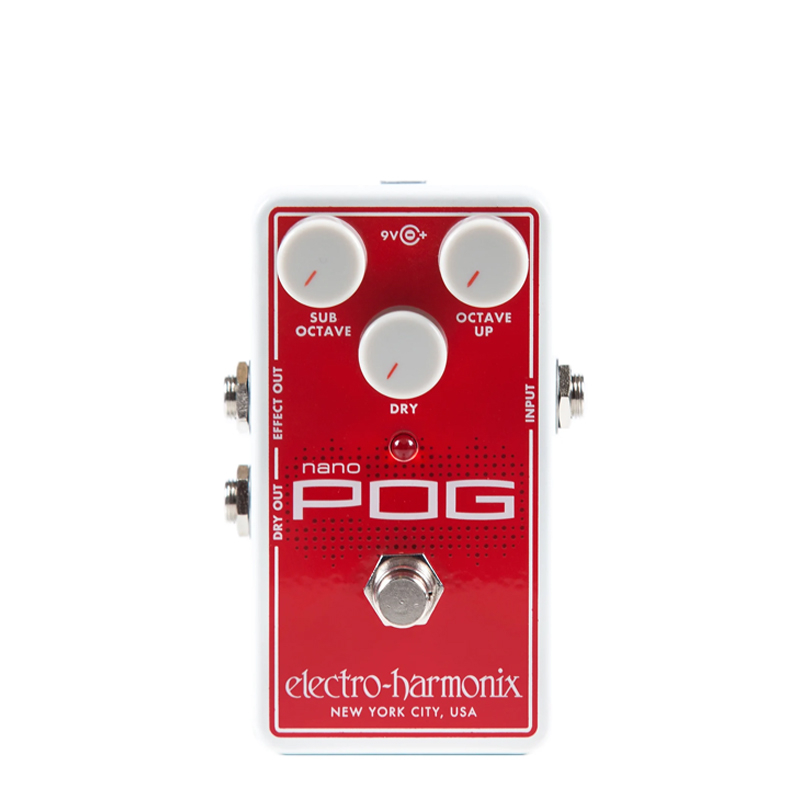
If you're talking standard octaves rather than expressive pitch shifting, and doubly so if you're looking to add additional bass, the EHX Micro POG has long been a favorite of players in two- and three-piece bands.
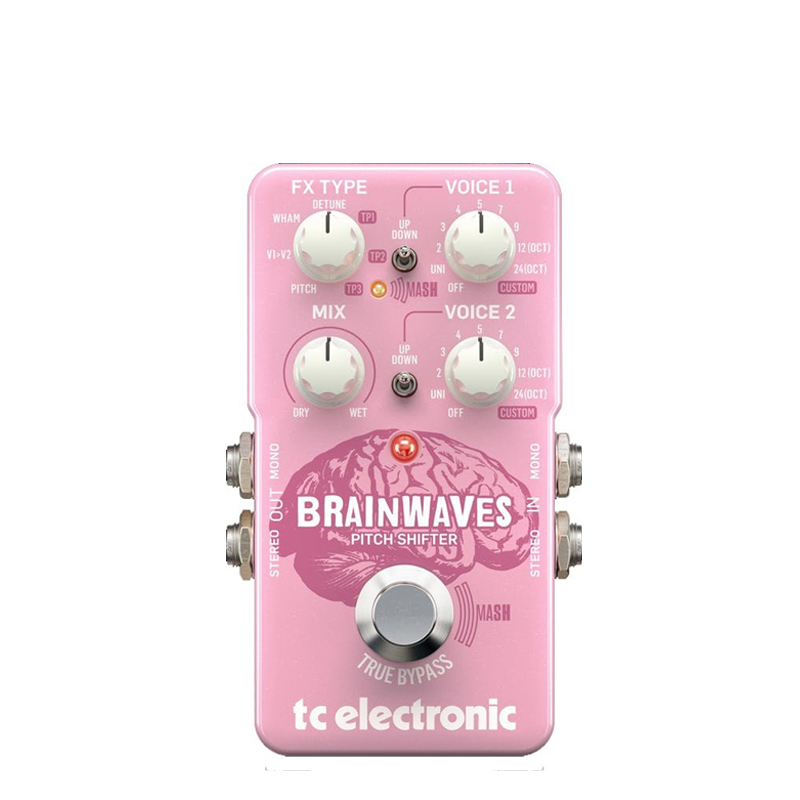
TC Electronic is well known for its affordable, feature-heavy pedals and the Brainwaves pitch shifter proves just how much they can pack into a single stompbox. This clever little pedal houses four frequency-altering effects such as classic octaves, dual pitch shifting, harmonizer and doubling/chorus effects.
Best overall
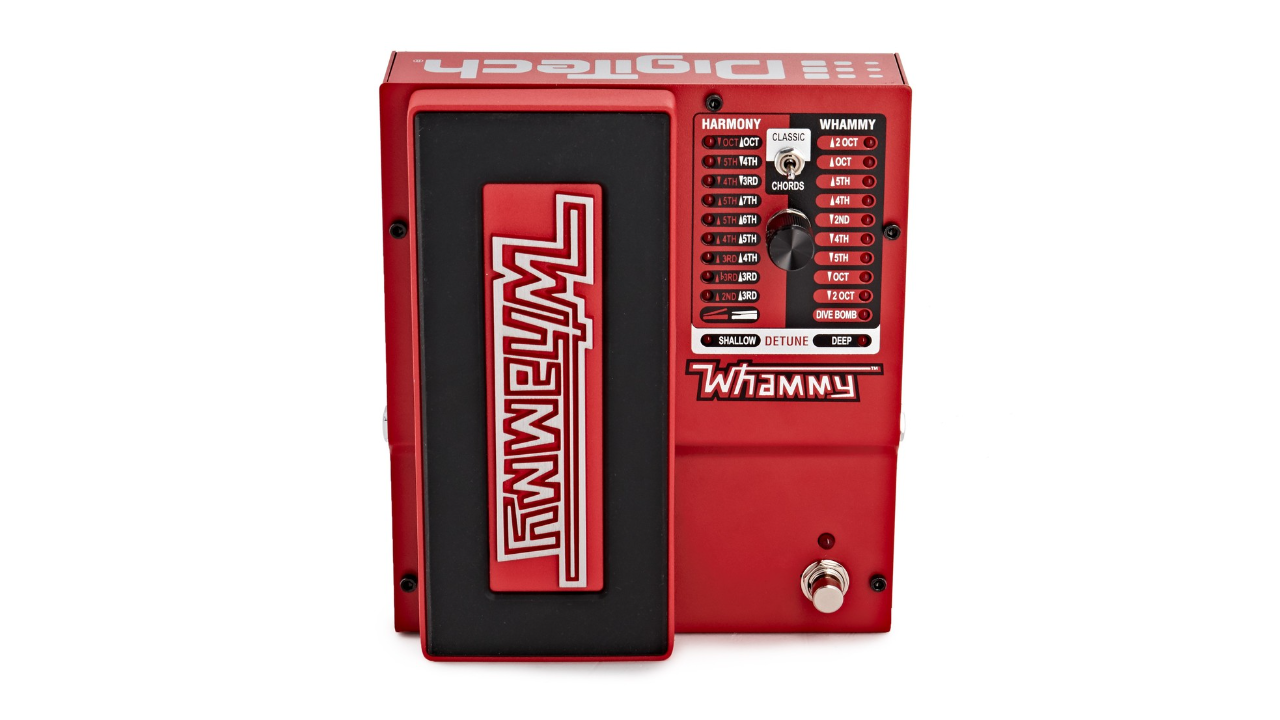
1. DigiTech Whammy V
Our expert review:
Specifications
Reasons to buy
Reasons to avoid
✅ Buy if you want an expressive pitch shifter: The dive bomb functionality makes this easily one of the most expressive octaves on the market.
❌ Avoid if you don't need pitch bends: If you are seeking a standard octave, then there are better and more affordable options available.
Since Tom Morello showed its expressive power, the Whammy has been used again and again to define songs, albums and even whole discographies. Guitarists like Johnny Greenwood, Steve Vai, Joe Satriani, Matt Bellamy and Joe Duplantier use it in radically different ways.
Besides its pitch-shifting mode,the Digitech Whammy V has a whole host of harmony modes, a detune mode that's in practice more like a chorus effect, and a dive-bomb mode that simulates a Floyd Rose being pushed until the strings are slack.
It's polyphonic as well, in the modern, 'chords' mode. Though we prefer the glitchier, old school Whammy timbre of the 'classic' mode.
If you want a pedal where the only limit is your imagination, the Whammy V is it. It's a blank canvas for you to define with your guitar playing as you see fit.
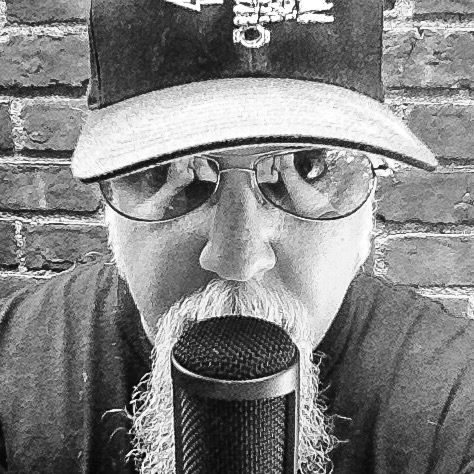
"The fifth-generation Whammy accurately duplicates the original Whammy’s quirks and qualities while providing new features and effects that undeniably make it DigiTech’s best Whammy pedal ever."
Read my full Digitech Whammy review
Best compact
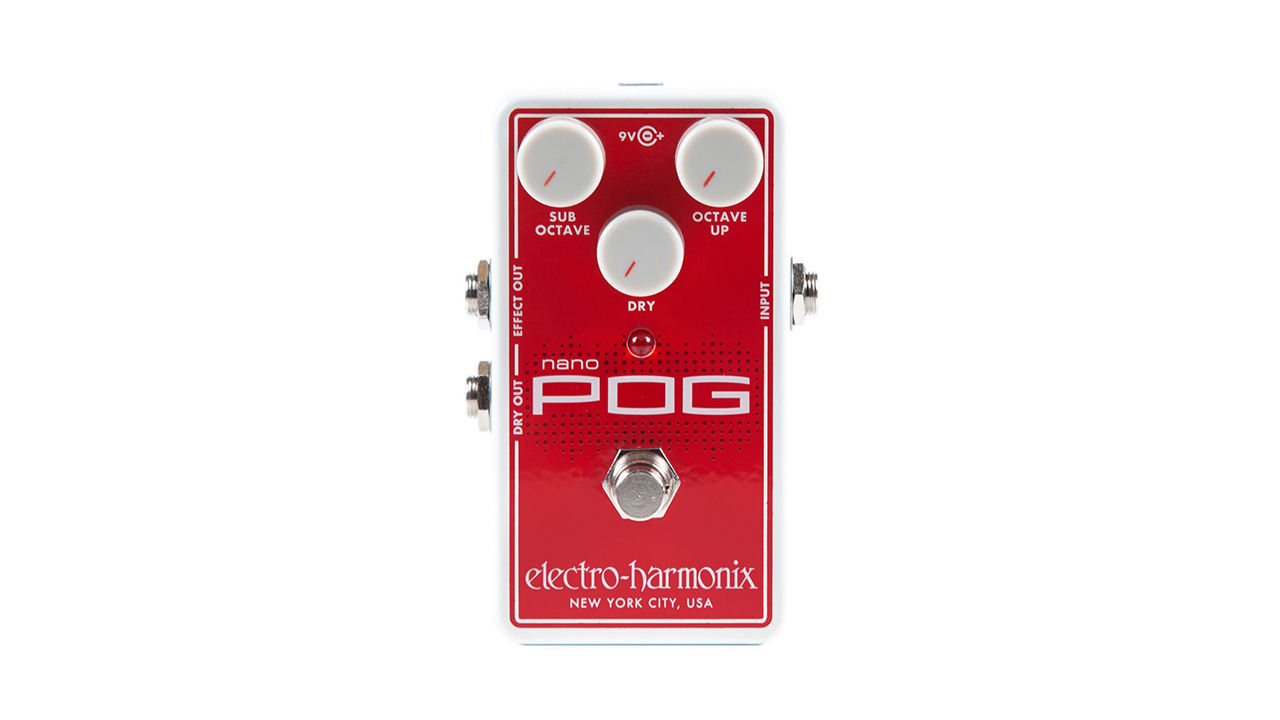
2. Electro Harmonix Nano POG
Our expert review:
Specifications
Reasons to buy
Reasons to avoid
✅ Buy if you want excellent tracking: The EHX Nano POG is a standout pedal known for its exceptional tracking and the clean octaves it produces.
❌ Avoid if you need pitch bends: If you want to experiment with pitch shifting, we'd recommend the DigiTech Whammy above.
If you're talking standard octaves rather than expressive pitch shifting, and doubly so if you're looking to add additional bass, the EHX Micro POG has long been a favorite of players in two- and three-piece bands.
As soon as the Micro POG came out, it became a staple on math and post-rock pedalboards, as it was polyphonic, low-latency, clean and relatively affordable. The introduction of an even smaller version, the Nano POG, was a hit as soon as it was released.
If your bassist can't, or won't, turn up to practice, get one of these pitch shifter pedals and don't look back.
Best budget
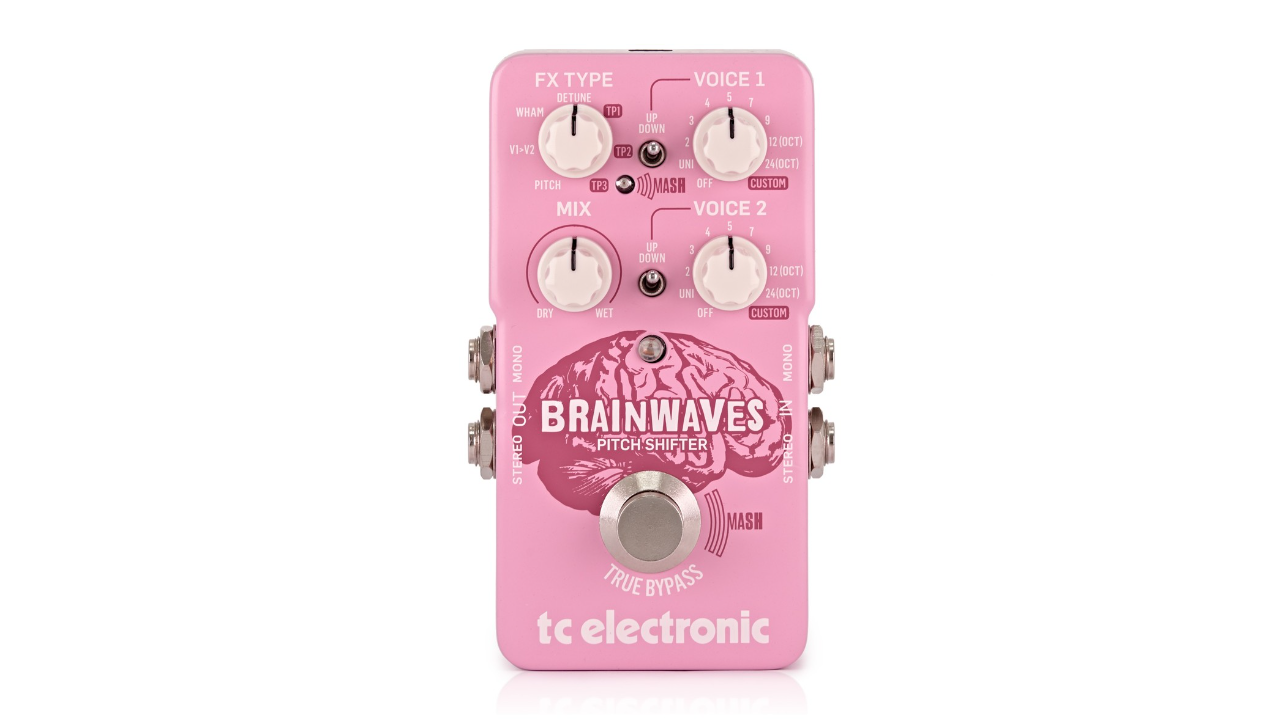
3. TC Electronic Brainwaves Pitch Shifter
Our expert review:
Specifications
Reasons to buy
Reasons to avoid
✅ Buy if you are on a tight budget: This pedal may be affordable, but it doesn't hold back on features.
❌ Avoid if you want to keep it simple: There is a lot in this pedal and it can get overwhelming.
TC Electronic is well known for its affordable, feature-heavy pedals and the Brainwaves pitch shifter proves just how much they can pack into a single stompbox. This clever little pedal houses four frequency-altering effects such as classic octaves, dual pitch shifting, harmonizer and doubling/chorus effects.
With dual voice controls, the Brainwaves allows you to dial in power chords, tri-octave leads, and stunning doubling effects easily and quickly - perfect for those looking to thicken up their sound.
The Mash switch allows pressure-sensitive expression that gives you access to everything from Rage Against The Machine style Whammy tricks to pedal-steel full step bends, as well as gravity-defying two-octave dive bombs - this cool feature is also programmable via the free TC TonePrint app.
Best for drop tuning
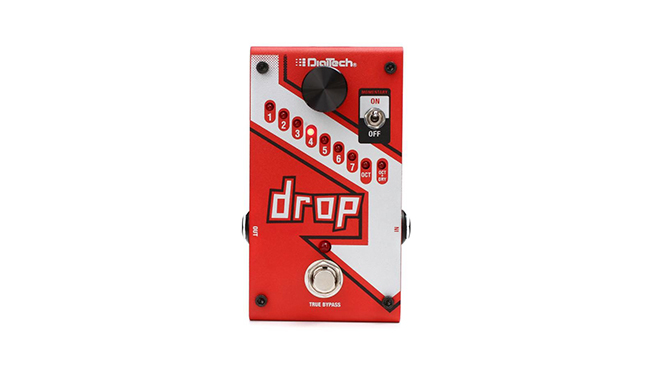
4. DigiTech The Drop
Our expert review:
Specifications
Reasons to buy
Reasons to avoid
✅ Buy if you use down-tuned guitars: The tracking is excellent on this pedal, especially for heavy metal guitars.
❌ Avoid if you need a dry out: Unfortunately, there is no dry output for splitting your octave and unaffected signal.
If you are specifically looking to drop tune a guitar with as little latency as possible, then the Digitech Drop is probably what you're looking for. At its less extreme settings, it's pretty much artifact-free.
The tracking is very good on the whole, even maintaining clarity when sweeping through the semitones. It is a great tool for experimenting with different tunings without having to worry about snapping guitar strings or altering your action.
Furthermore, it's not even that expensive – we're continually trying to work out what the catch is, other than that it only does one thing. That said, it does do that one thing incredibly well. If all you need is seamless down-tuning at the click of a button, then the Drop does it better than anything else out there.
Best for harmony
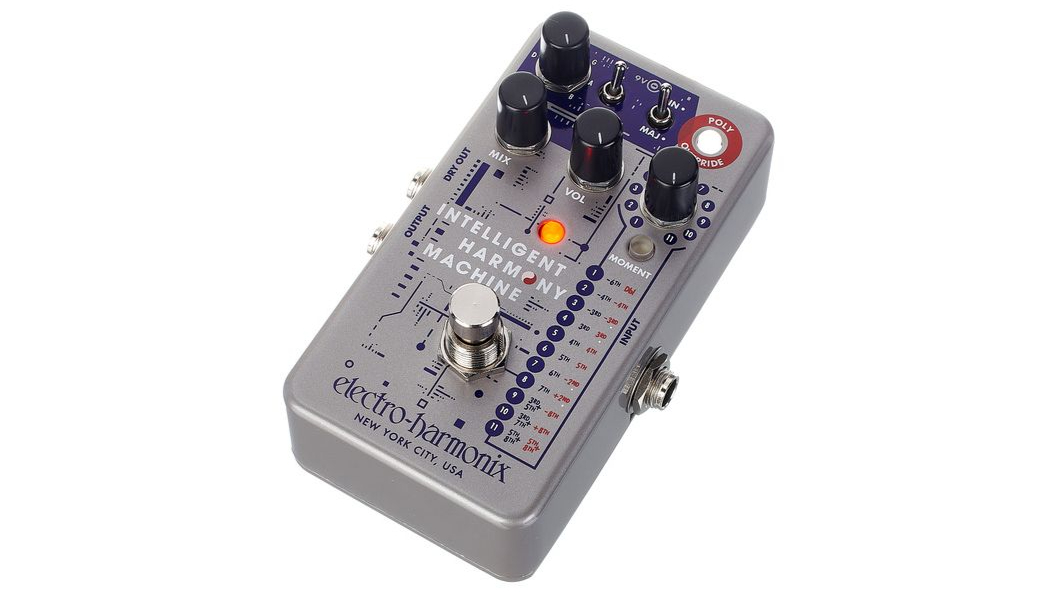
5. Electro-Harmonix Intelligent Harmony Machine
Our expert review:
Specifications
Reasons to buy
Reasons to avoid
✅ Buy if you want perfect harmonies: The tracking is excellent in this pedal leading to perfect sounding harmony lines.
❌ Avoid if you don't need harmony parts: While this pedal can function as a basic pitch shifter, it's more suited to harmony parts.
What makes this harmony machine "intelligent" is its ability to take any played note and instantly pair it with a diatonic harmony based on the key selected on the pedal's interface. This feature also enables semitone bends while the harmony layer shifts up a tone to reach the nearest diatonic note. The polyphonic override mode disengages the scale quantizing for regular polyphonic pitch shifting, similar to the POG.
Blending the dry signal with the wet mix knob provides beautiful unison harmonies, and setting the pedal’s mix to full causes it to act like a virtual capo or drop tuner, pitching the entire instrument up or down by up to an octave in either direction.
By holding the momentary switch, the Intelligent Harmony Machine (IHM) can perform ”ballistic” pitch sweeps, with the length of the sweep controlled by a secondary function of the volume knob while the footswitch is engaged. In addition to pitch shifting, the IHM can create an instant stereo doubling effect by sending the affected audio to one output and the dry signal to the other – another added bonus of this pedal.
Best modern
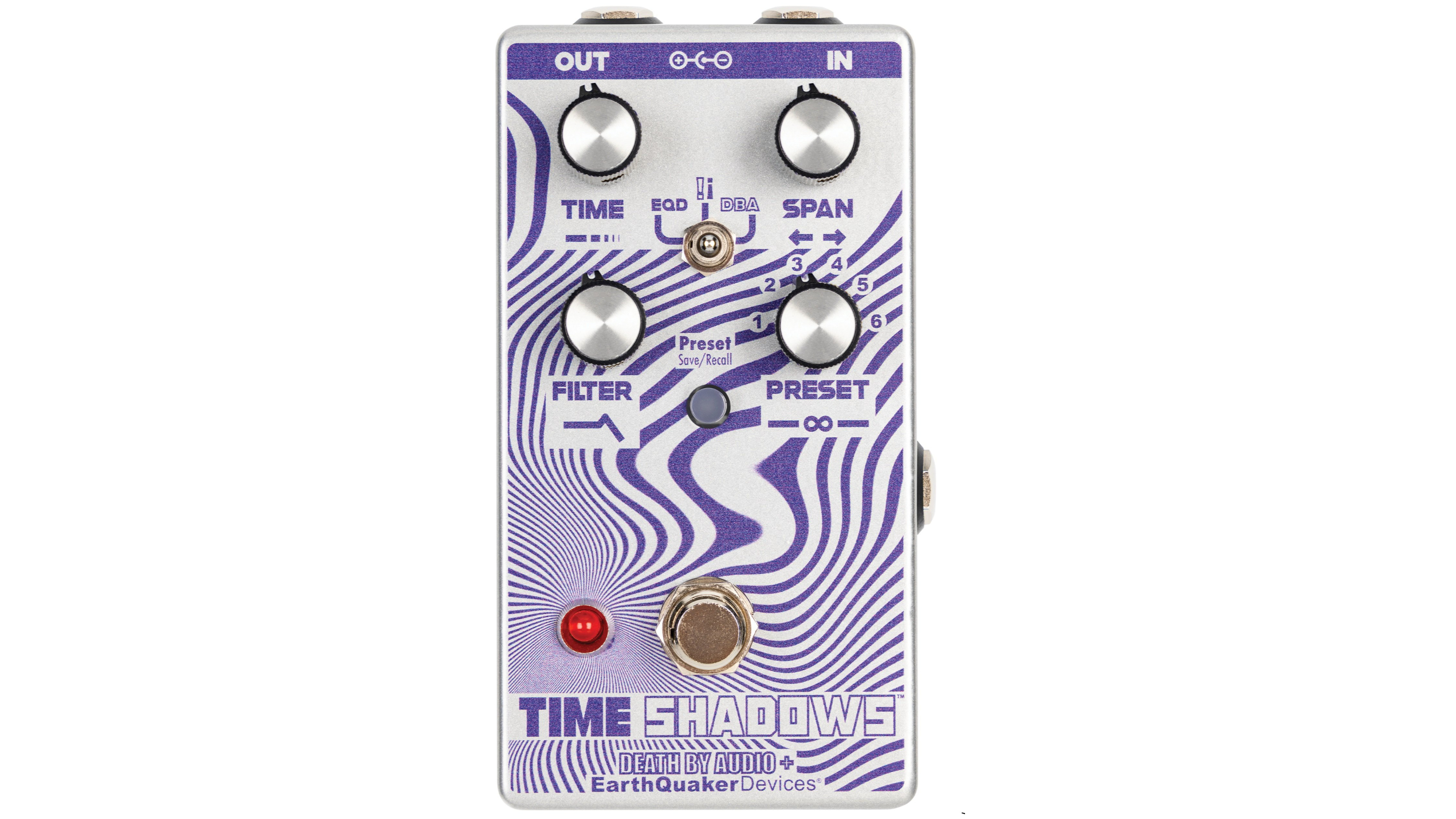
6. Earthquaker Devices & Death By Audio Time Shadows 2
Our expert review:
Specifications
Reasons to buy
Reasons to avoid
✅ Buy if you want a do it all pitch shifter: Pitch shifting, pitch modulation, delay, and programmable expression control, this pedal can do it all.
❌ Avoid if you want simple: There's no getting around it, this is a fairly complicated pedal.
Earthquaker Devices are back to their eccentric ways, unlocking surreal and synthetic tones through a joint venture with the boundary-pushing designers at Death by Audio. The Time Shadows II has been reintroduced to the market, with the original version initially released in 2020 as a limited run of 1000 units.
This pedal handles pitch shifting, pitch modulation, delay, and everything in between, offering programmable expression control over each of the front panel knobs: time, span (feedback), and a low pass filter. It comes with six preset banks, which can be overwritten to save your own sounds and expression routings.
The three toggle-between modes on the front panel include: EQD mode, which turns the pedal into a subharmonic pitch shifter, adding flange and ambience to the monstrous drop-tuned sound; !¡ mode, a pitch-warped delay; and DBA mode, a multi-delay filter modulation that spans from shimmers to cavernous delays.

"Musicians with open minds seeking complex, adventurous new sounds to explore will find plenty of inspiration from the gloriously wild and weird effects lurking with Time Shadows II."
Read the full Earthquaker Devices & Death By Audio Time Shadows 2
Best vintage
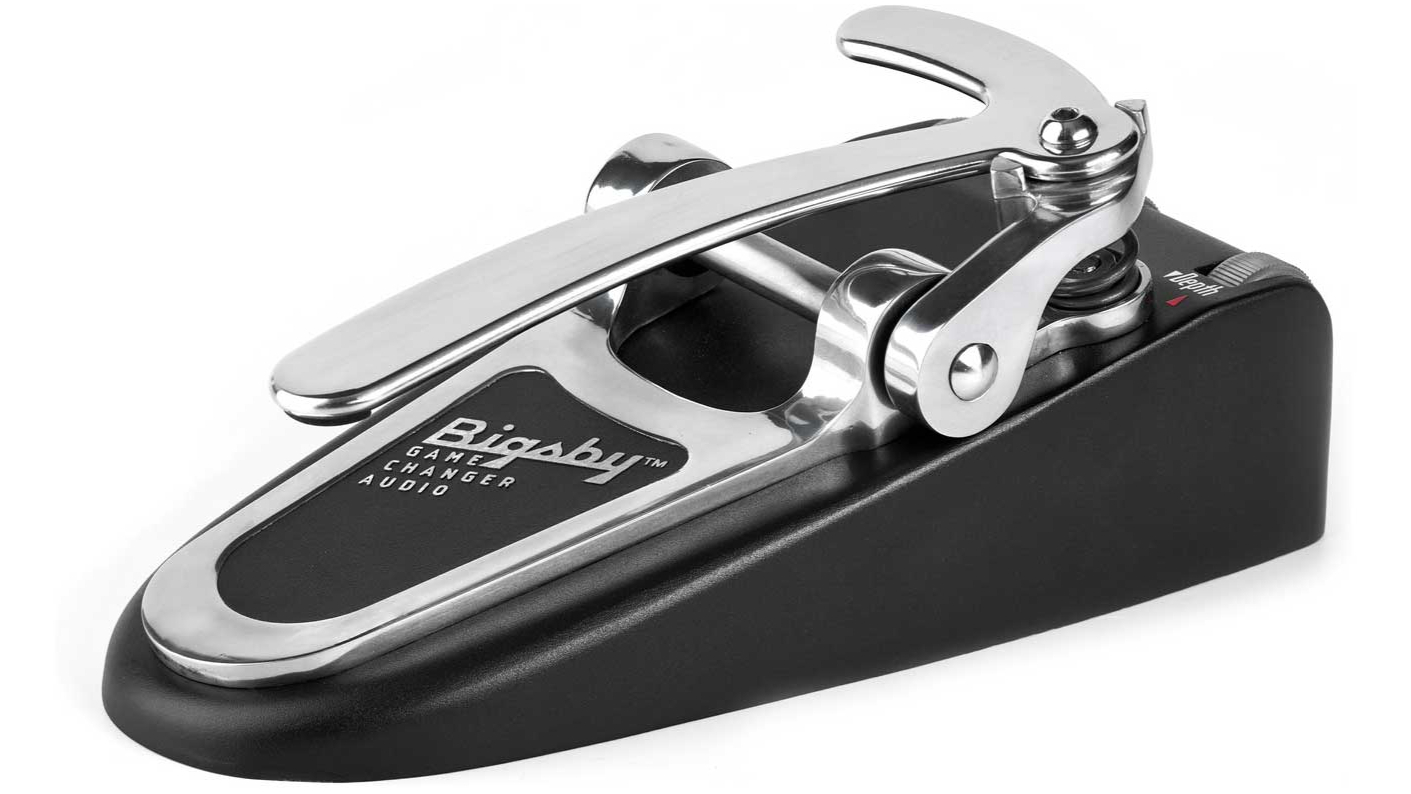
7. Gamechanger Audio Bigsby Pedal
Our expert review:
Specifications
Reasons to buy
Reasons to avoid
✅ Buy if you want the tone of a Bigsby: This pedal allows you to nail those Classic Bigsby tones all without installing the famous vibrato to your guitar.
❌ Avoid if you don't like the sound of a Bigsby: This pedal does one sound very well, but if you don't want vintage vibrato, we'd suggest something else.
Have you ever wished your favorite guitar had a Bigsby bridge? Thanks to Gamechanger Audio, you can now enjoy the iconic sound with their Bigsby pedal, without risking the feel and unique character of your prized instrument by installing hardware.
The Bigsby pedal allows you to achieve that classic sound: press towards the top of the pedal to raise the pitch or lean into the trem arm to dive into lush, detuned string tension release. The depth knob controls the detune range, allowing for anything from full octave bends to subtle vibrato. In addition to manual pitch shifting, the pedal can be set to trigger a continuous auto pitch wobble when pressed, with adjustable detune amount and vibrato rate.
Shark DSP processing emulates the distinctive effect of a Bigsby, replicating the characterful detuning of multiple strings.
Best premium
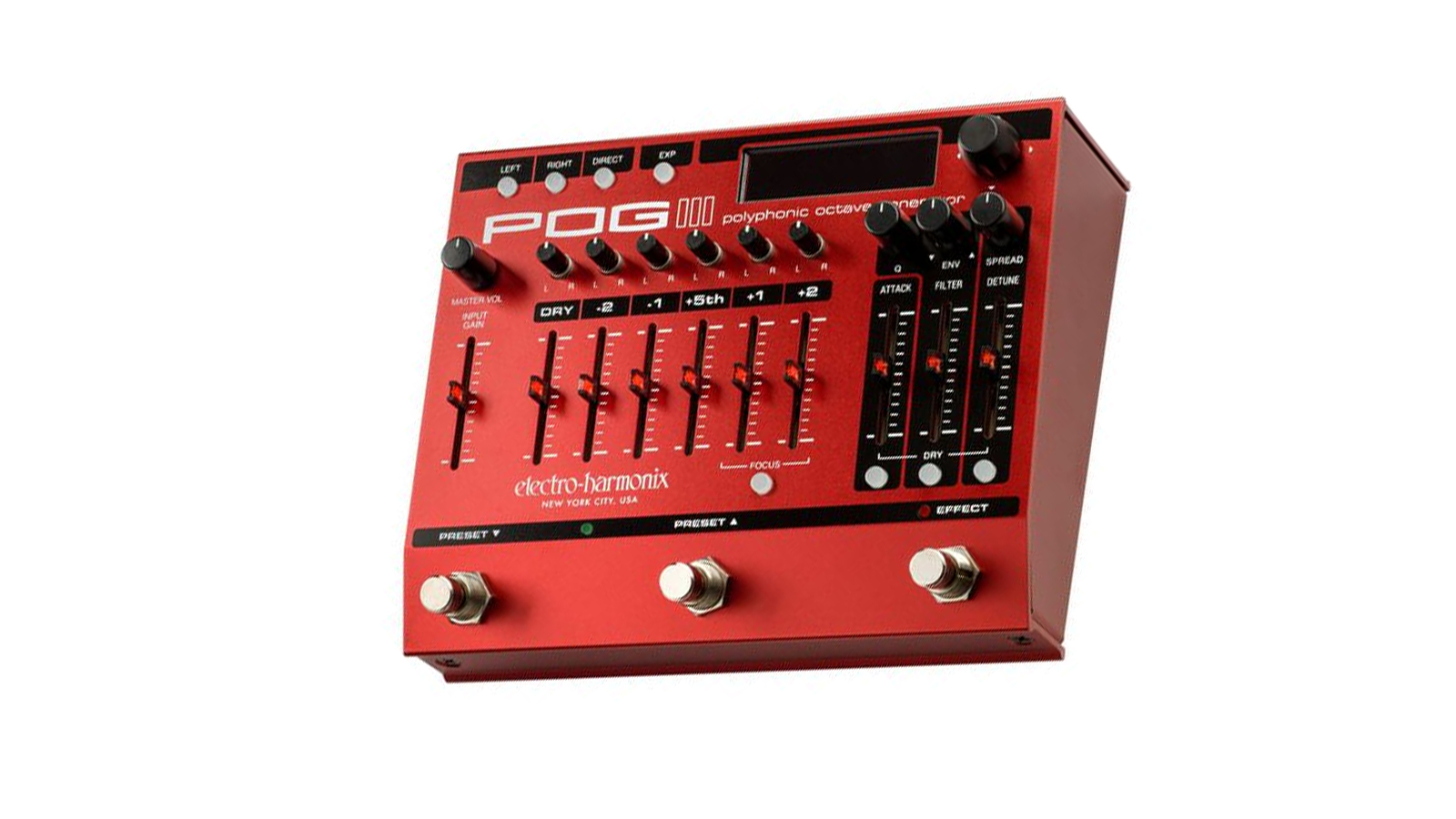
8. Electro-Harmonix POG3
Our expert review:
Specifications
Reasons to buy
Reasons to avoid
✅ Buy if you need the best tracking: You'll be hard-pushed to find better tracking in an octave pedal.
❌ Avoid if you like things simple: This stomp has a lot of tonal control, which could be too much for some.
The Electro-Harmonix POG3 takes everything great about the legendary POG series and dials it up a notch. This powerhouse pedal delivers killer polyphonic octave effects, letting you layer your tone with everything from deep, rumbling lows to shimmering highs. Whether you’re after a lush 12-string vibe, organ-like swells or synthy lead tones, the POG3 has you covered.
What really sets this pedal apart is its dead-on tracking – no glitchy weirdness, just smooth, musical octaves that respond to chords and single notes alike. You also get handy built-in effects like detune, attack delay and filtering to shape your sound even further. Plus, with preset-saving capabilities, dialing in your favorite tones and recalling them mid-set is a breeze.
Sure, it is not the cheapest octave pedal out there, but if you want pristine tracking, rich harmonics, and an OLED screen that sets it apart, the POG3 is tough to beat.

"If you like what a POG does, you’ll love this! Taking things to a new level, this is sonic wizardry at its finest for those looking to get creative with sound."
Read my full Electro-Harmonix POG 3 review
How to Choose
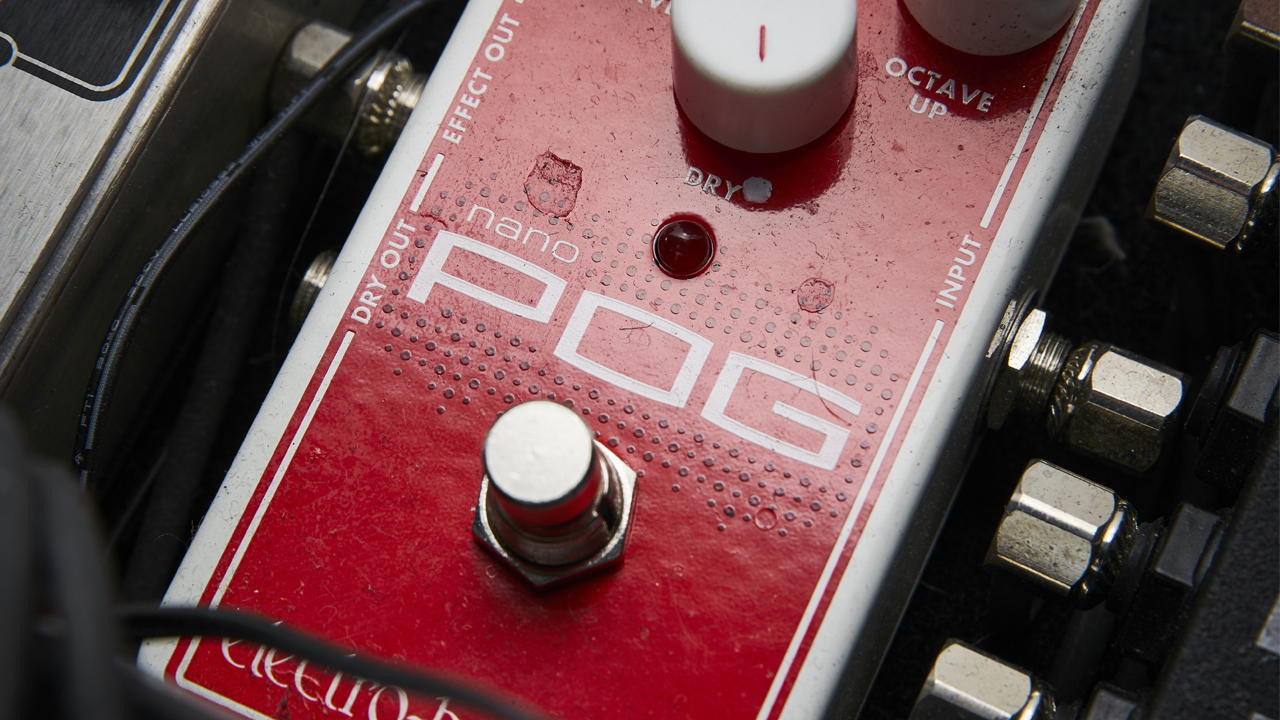
Choosing the best pitch shifter pedal for you
You can trust Guitar World
Even though analog octave pedals have been around since the 1960s, the pedal that truly kickstarted the pitch-shifting phenomenon was the glorious Digitech Whammy. With the advent of digital delay pedals, it became theoretically possible to repitch a note by altering sample duration, although it took some time to perfect the process.
Analog vs digital pitch shifting
Initially, the results were glitchy and strange – the correct note, but in a mangled, digitized form. Thanks to modern technology, it's now possible to achieve much cleaner-sounding pitch shifting without digital artifacts. However, some players prefer the glitchier sound for artistic reasons. For example, if you're using the pedal to drop-tune your guitar, you'd likely want as clean a sound as possible. Conversely, if you're in a math-rock band looking for extreme two-octave pitch jumps, a glitchier pitch shift might be more suitable.
Polyphonic vs monophonic pitch shifting
Our guide to the best pitch shifter pedals covers all these bases. Generally, polyphonic pitch shifter pedals that can accurately shift more than one note tend to be less glitchy. However, each pedal will feel slightly different due to each manufacturer's unique pitch-shifting technology and even lo-fi artifacts that contribute to certain desired tones or timbres. For instance, the Whammy produces a warble, the Boss has an envelope similar to a flute, and the EHX resembles a bitcrush with a clinical edge – at least that's our take.
Harmonizing and additional features
Beyond the glitchiness, it's worth considering whether the pedal has a harmony function. While pedals like the Whammy and Pitch Fork primarily shift the pitch of your guitar, they can also function as harmonizers. When combined with your playing style and artistic endeavors, each pedal can be seen through a lens of its own.
FAQs
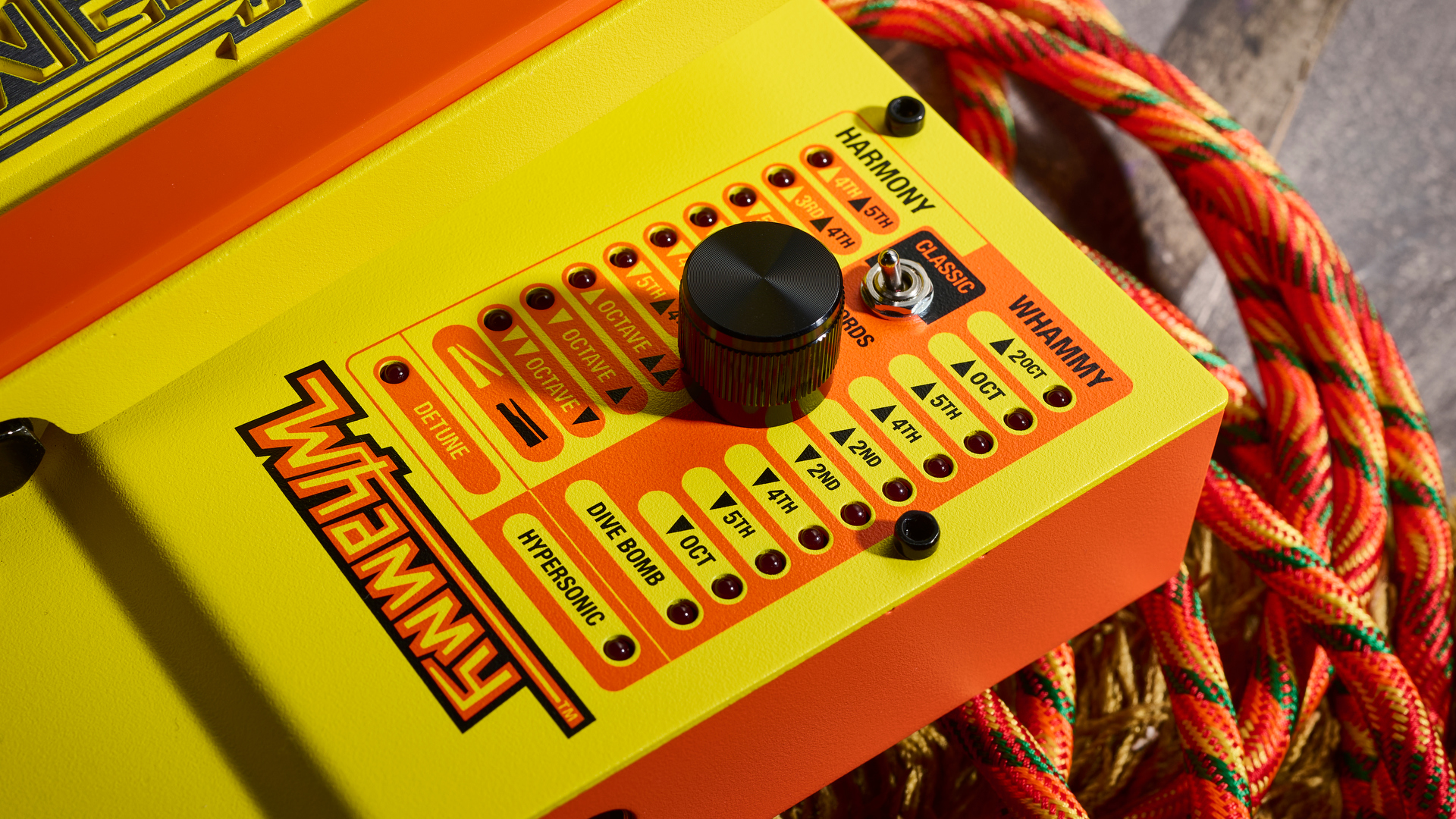
Do I need to think about control when choosing a pitch shifter pedal?
Yes! When picking the best pitch shifter pedal for you, it's important to consider how the effect is controlled. Different pedals offer various ways to manipulate pitch, each with its own benefits.
Rocker pedals
The Digitech Whammy sets the benchmark for pitch-shifting control with its rocker pedal design, similar to a wah pedal. This allows for real-time, expressive pitch changes by adjusting the pedal's angle with your foot.
Latching vs. momentary footswitches
Many modern pitch shifters use a latching footswitch, where pressing the switch shifts the pitch and keeps it there until disengaged. Others offer a momentary mode, meaning the effect is only active while the footswitch is held down – perfect for quick, expressive shifts.
Ballistic mode
Some pedals now include a ballistic control, which lets you adjust how quickly the pitch changes to and from the target note. This can add a more natural or exaggerated effect, depending on your needs.
How much range do you need?
Most pitch shifter pedals cover plus or minus two octaves, but some offer even more extreme shifts, like the Whammy’s Dive Bomb mode, which plunges notes downwards for dramatic effects.
How we test
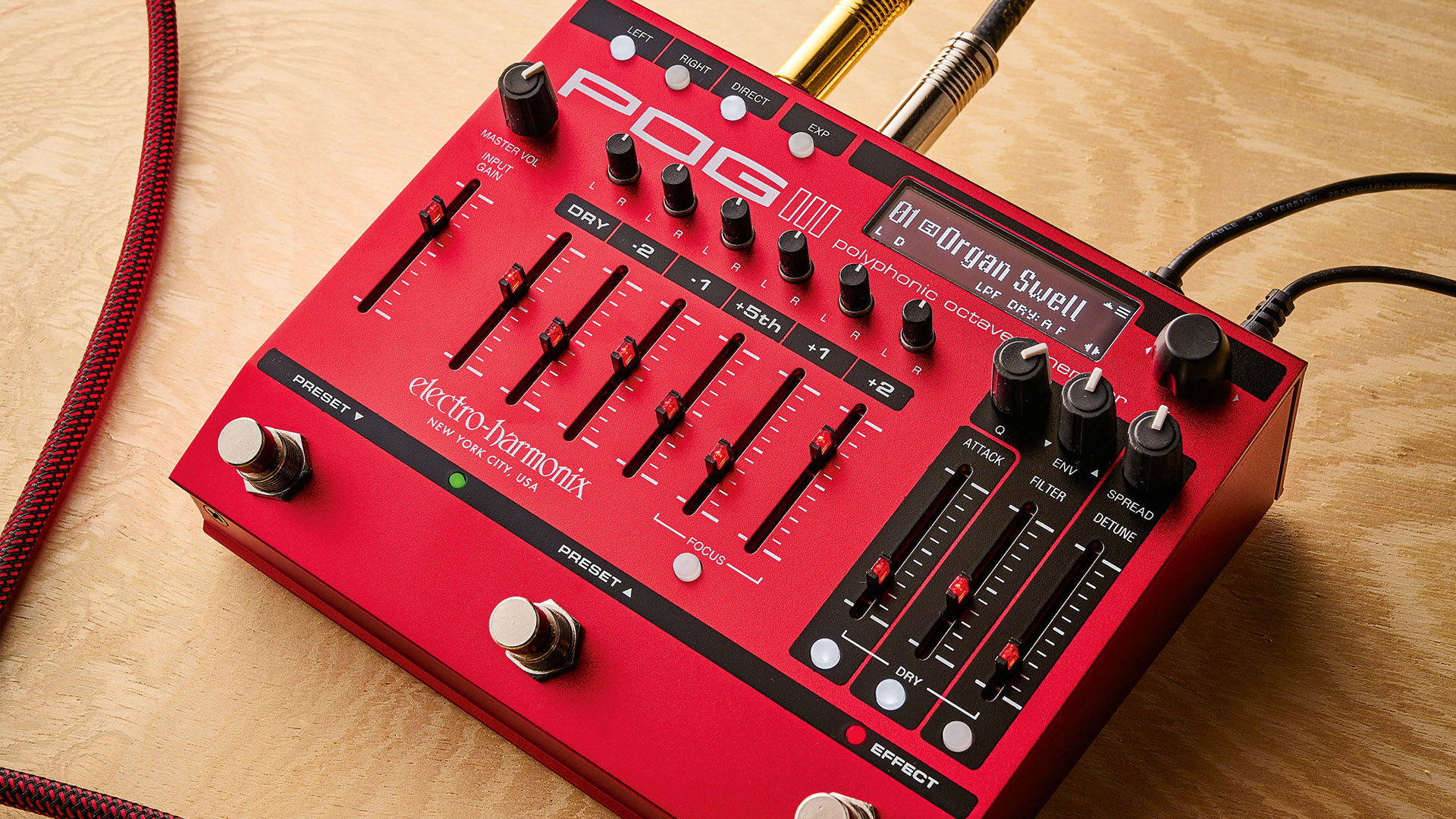
At Guitar World, our team consists of seasoned musicians who have played and tested numerous guitar products, including countless pitch shifter pedals over the years. As avid guitar enthusiasts, we understand the importance of achieving the right sound and tone, and we rely on our extensive experience using these products in live performances, studio recordings, and rehearsals to identify the very best products in our guides.
When we evaluate guitar pedals, our first step is to assess the enclosure's quality, examining its sturdiness and durability. Since these are pedals that receive heavy use, we need to ensure they can withstand the wear and tear of repeated stomping and life on the road.
Next, we shift our attention to the moving parts, like footswitches, expression pedals, and knobs verifying that they're reliable and smooth to operate. Additionally, we evaluate their accessibility and layout, as many pedals feature a wealth of different controls. This test is critical since the last thing anyone wants is to struggle with their equipment while performing.
Once we've examined the pedals' physical attributes, we begin to assess them sonically, starting with the onboard presets. We listen closely to the sound that they're intended to create, rating them on their authenticity. Next, we test how user-friendly the interface is by creating our own sounds. We'll use them at home, in the practice room, and live to ensure we get a full understanding of how each piece of gear reacts in real-world scenarios.
Finally, if the pedal offers any additional features, such as an accompanying app, MIDI in/out, or FX loop, we will explore them to ensure we have evaluated every feature on the pedal.
Find out more about how we make our recommendations and how we test each of the products in our buyer's guides.
Why trust us?
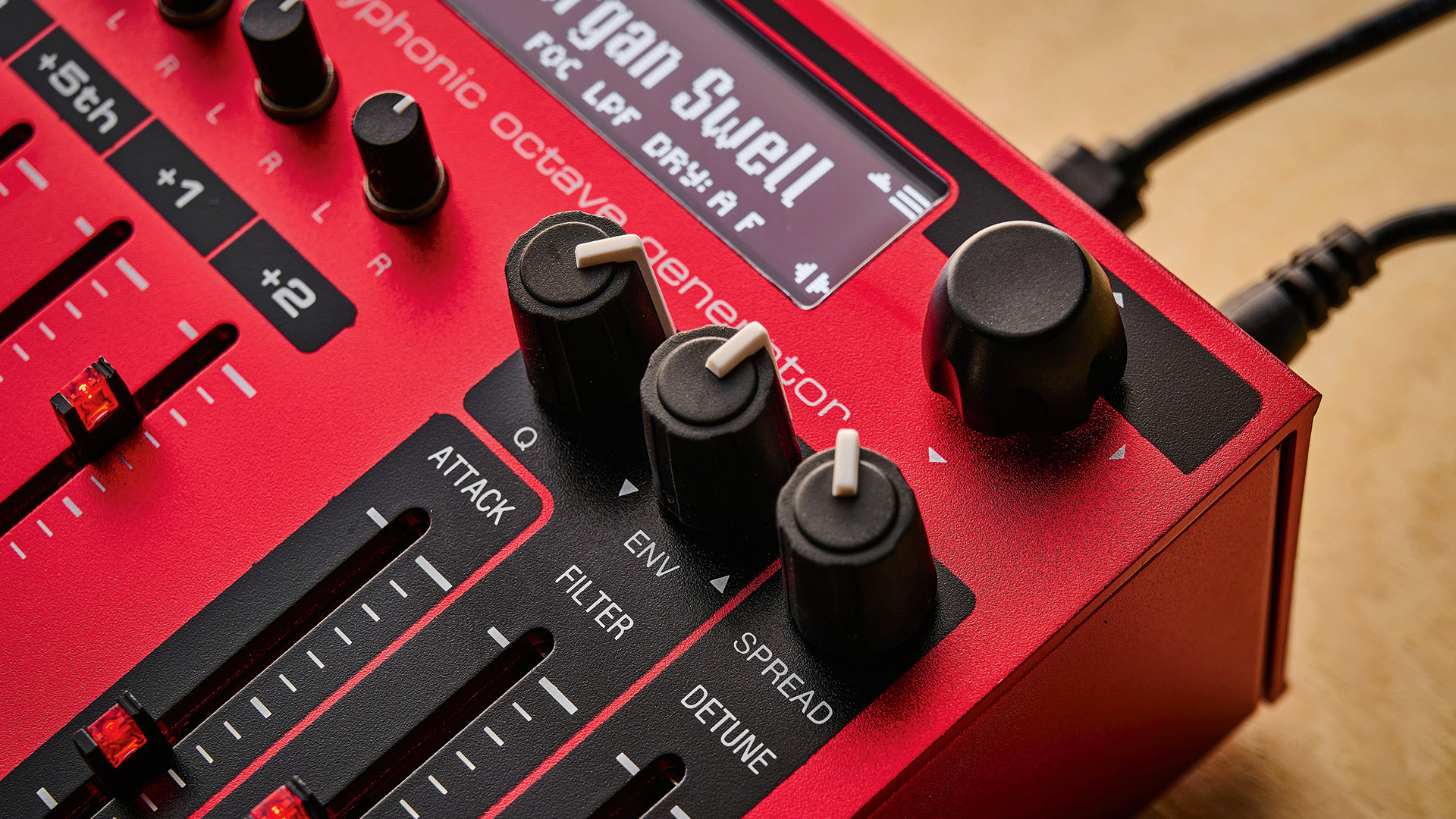
☑️ A global audience of 3.8 million guitarists monthly
☑️ 1,200+ reviews on GuitarWorld.com
☑️ 30+ years of product testing at Guitar World
Guitar World boasts over 44 years of expertise and stands as the ultimate authority on all things related to guitars. The magazine and website feature expertly written gear round-ups and top-quality, authoritative reviews penned by a team of highly experienced industry professionals.
Guitar World's inaugural print issue hit the shelves in July 1980, and ever since, it has been captivating players and enthusiasts with engaging lessons, insightful interviews with the biggest guitar heroes, and priceless buying advice for newbie players.
Furthermore, GuitarWorld.com continues this legacy online and serves as the hub of the world's foremost authorities on guitar playing. The site not only hosts content from Guitar World but also showcases articles from respected publications such as Guitarist, Total Guitar, Guitar Techniques, and Bass Player. With a reach extending to 3.8 million players each month, GuitarWorld.com is a go-to destination for guitar fanatics globally.
Related buyer's guides
- Need a do-it-all guitar FX unit? These are the best multi-effects pedals
- From analog to digital, these are the best chorus pedals
- Load up your pedalboard with the best mini-pedals
- Organize your effects with the best pedalboards
- Or power up your effects with the best pedalboard power supplies
- Embrace the fuzz with the best fuzz pedals
All the latest guitar news, interviews, lessons, reviews, deals and more, direct to your inbox!
Alex Lynham is a gear obsessive who's been collecting and building modern and vintage equipment since he got his first Saturday job. Besides reviewing countless pedals for Total Guitar, he's written guides on how to build your first pedal, how to build a tube amp from a kit, and briefly went viral when he released a glitch delay pedal, the Atom Smasher.
- Ross Holder
- Joe Dean
- Daryl RobertsonSenior Deals Writer

